Claris FileMaker
The power of custom with the efficiency of low code.
Claris FileMaker works natively across Windows, macOS, Linux, iOS, iPadOS, and across the web. Deploy to the cloud, on-premise, hybrid, mobile, and even offline.
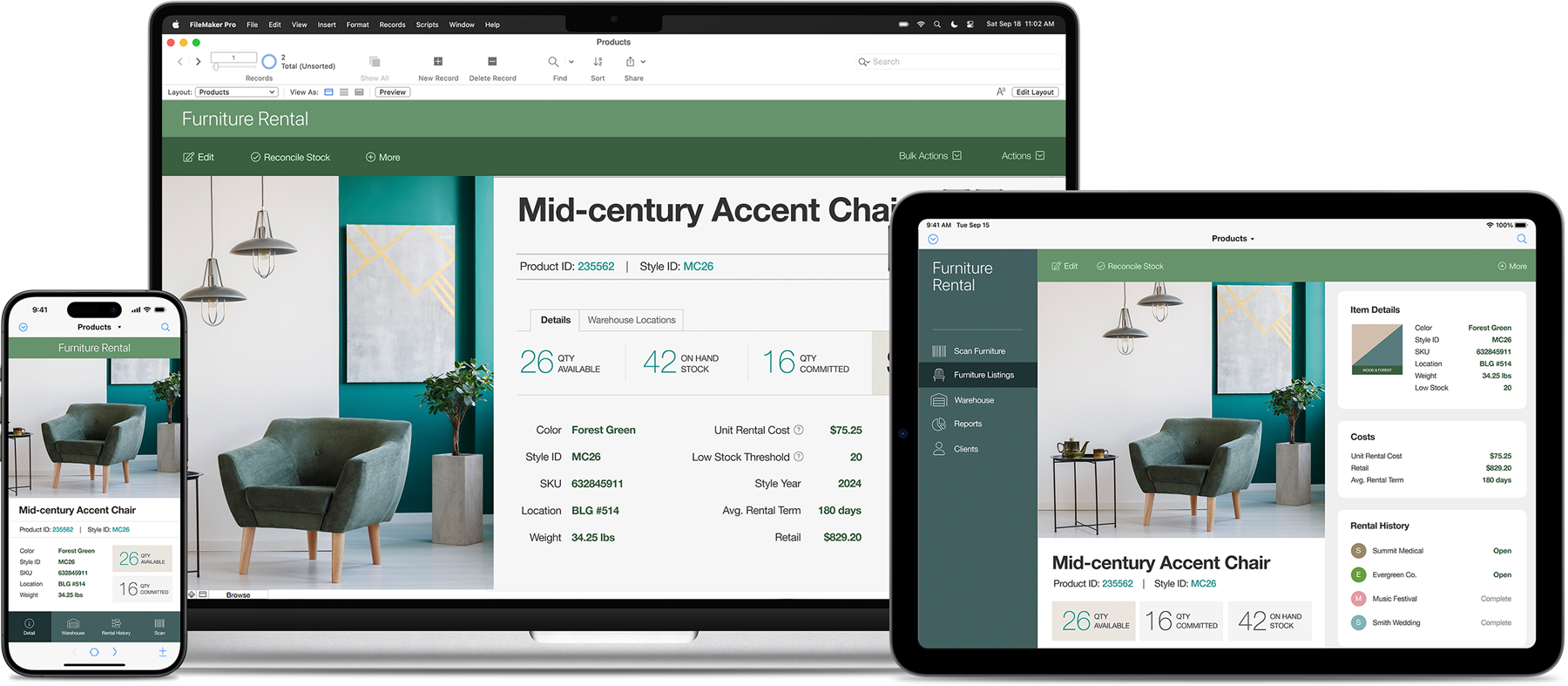
Claris FileMaker works natively across Windows, macOS, Linux, iOS, iPadOS, and across the web. Deploy to the cloud, on-premise, hybrid, mobile, and even offline.

You have some ideas around how to optimize the way your team works. With Claris FileMaker, you can build the perfect tech stack to make it happen.

Quickly build apps that create efficiencies, grow your competitive edge, and help you win.

Always say "yes" to the newest tech — like AI — to power custom apps like never before.

FileMaker integrates with your systems to create the ultimate workplace operating system.
FileMaker has really given us the backbone and the data and the information to enable us to grow our business.
The flexibility of FileMaker frees developers to leverage the speed of pre-built tools and the power of code, when and how they want.
Quickly and seamlessly integrate your applications and web-based services with FileMaker’s open platform using JavaScript, JSON, REST APIs, and more.
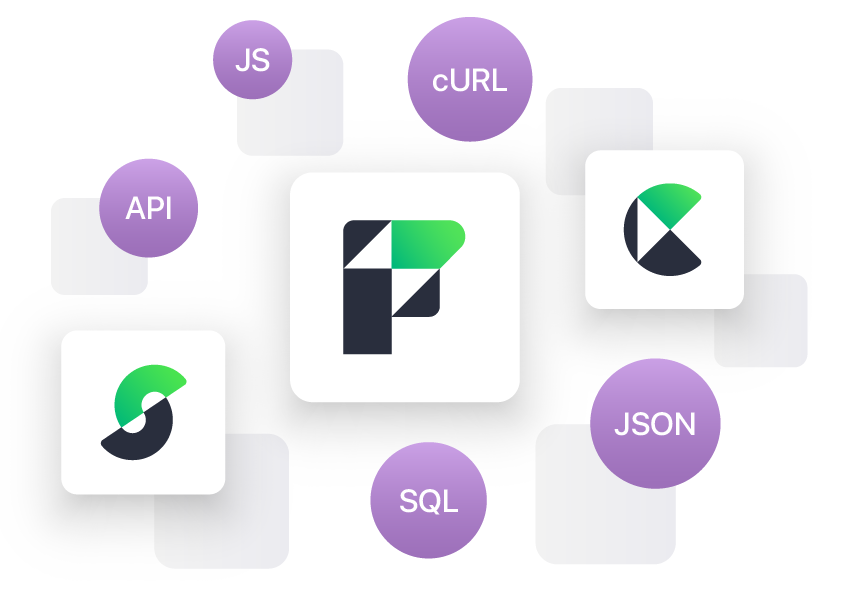
Equip users with the data they need to tackle decisions with confidence.
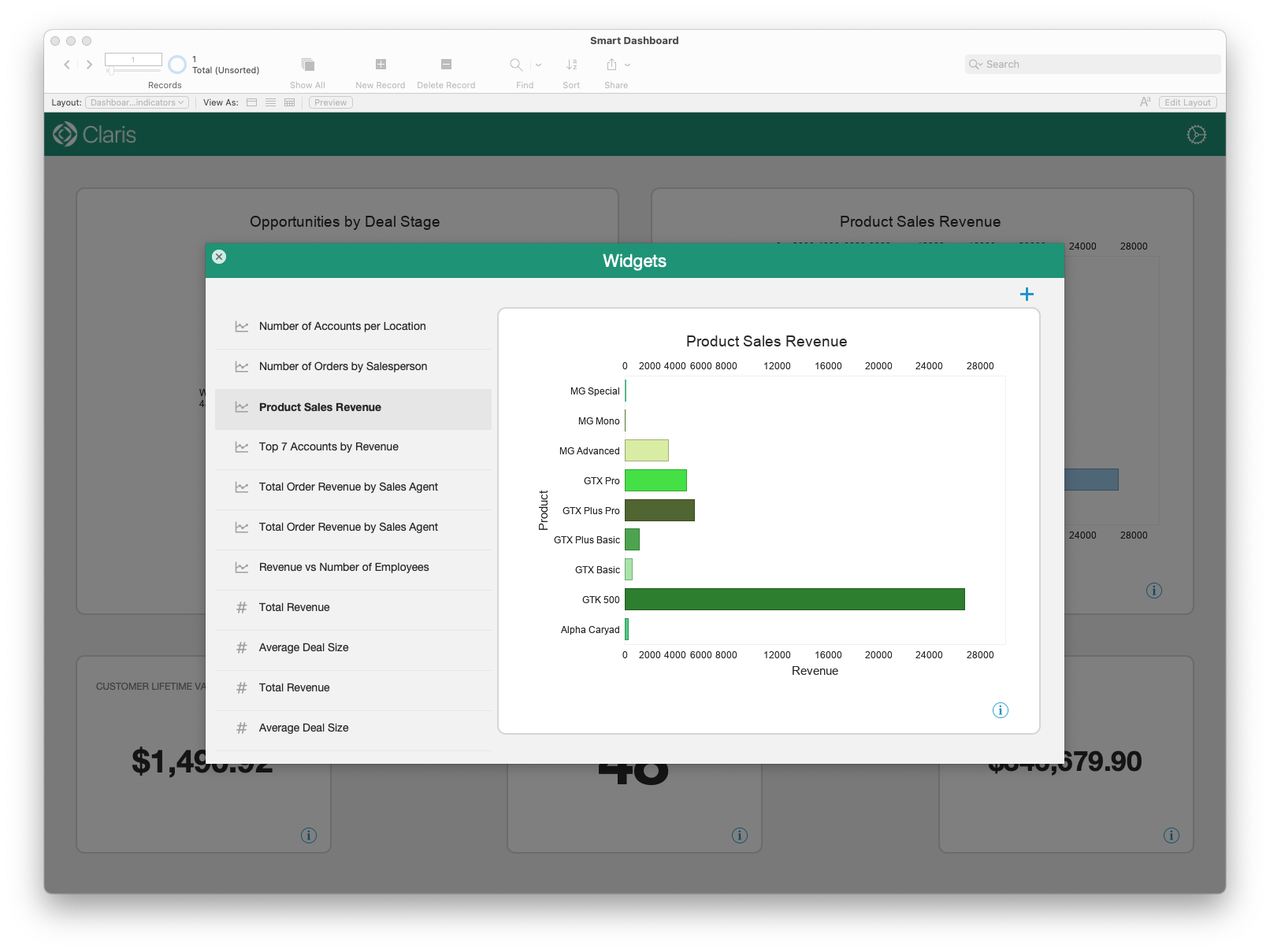
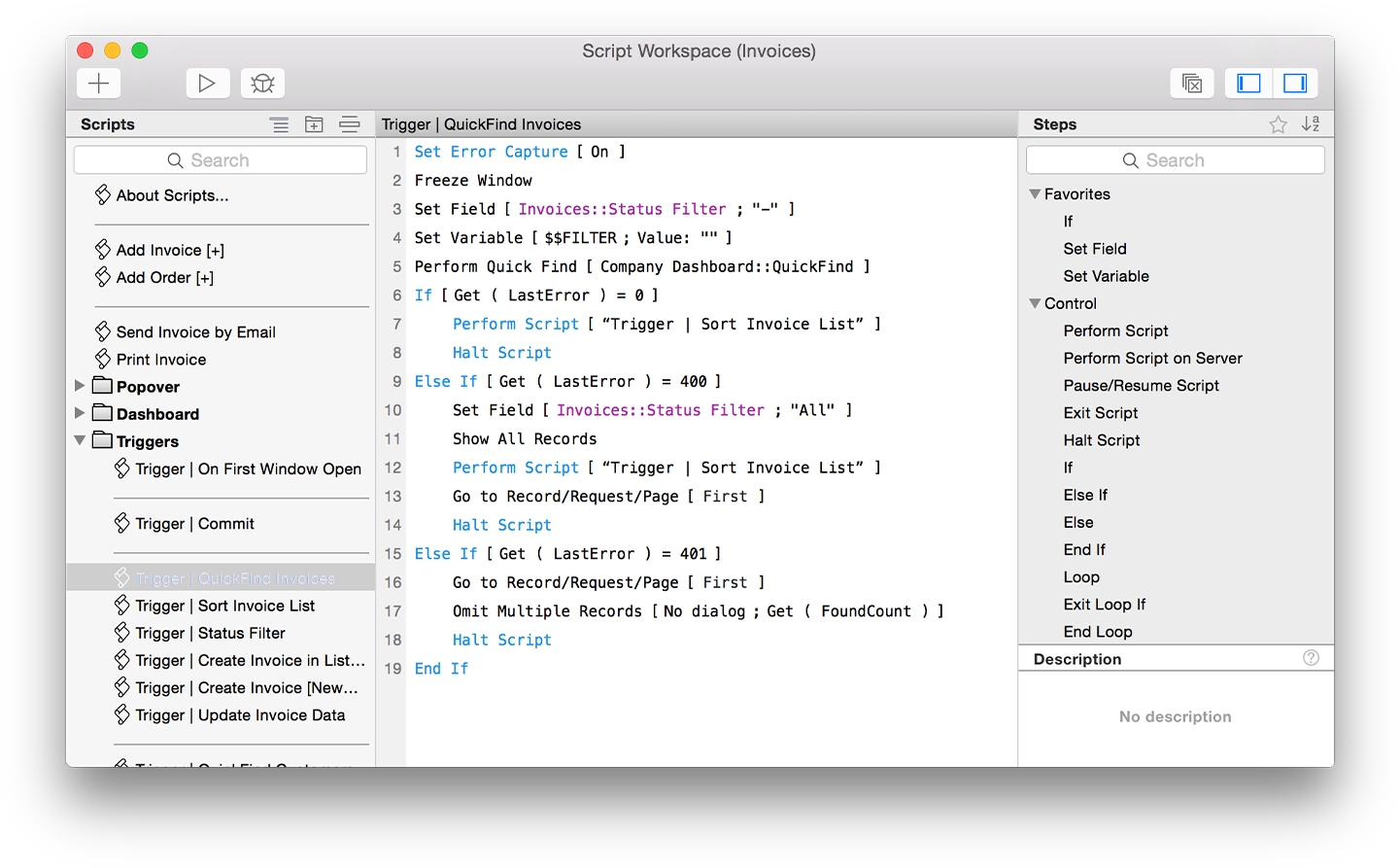
Integrated script steps allow you to search your data using natural language and generate insights-rich charts.
Increased administrator visibility and control of schedules and users means you can deploy apps quickly to the teams who need them.
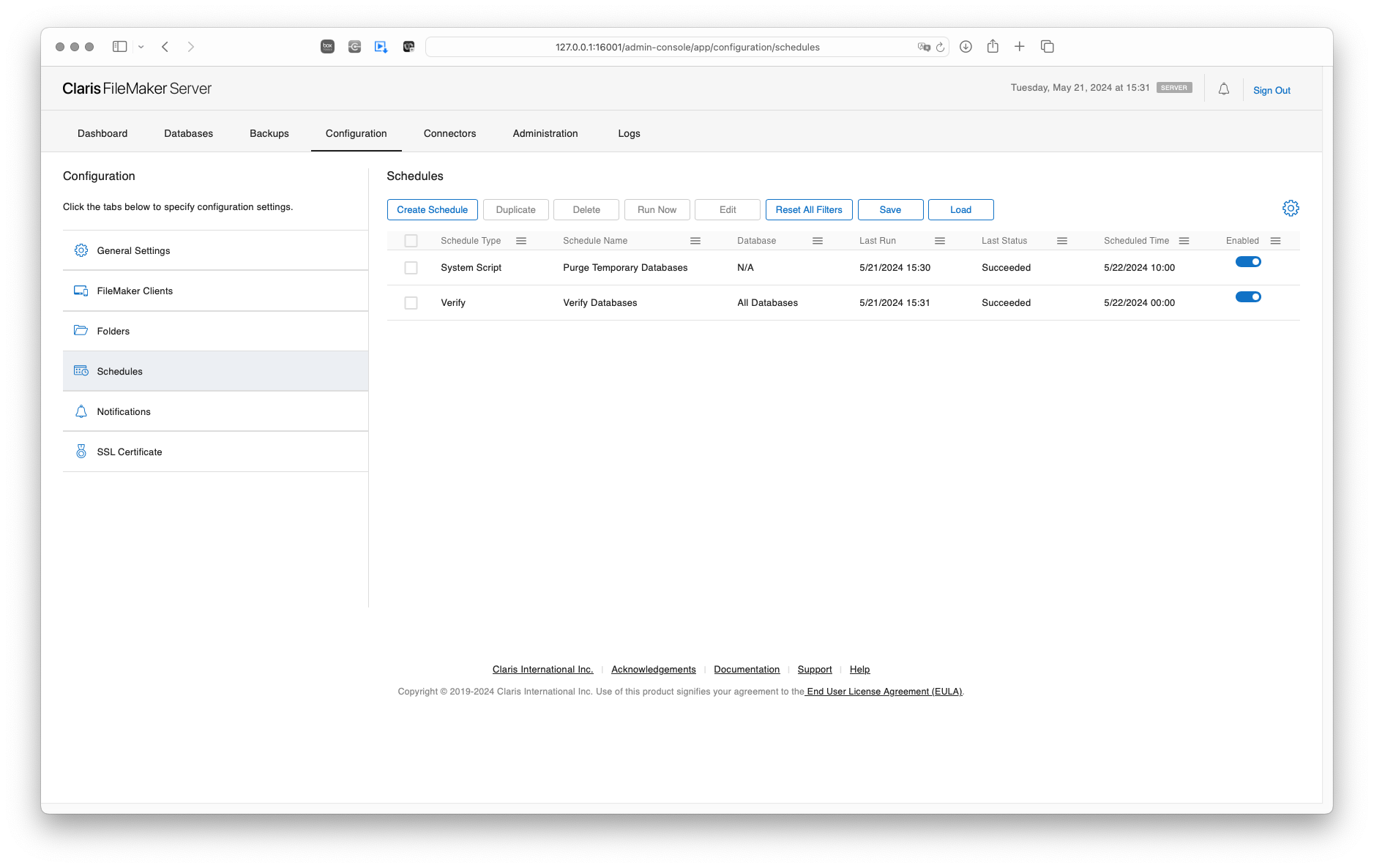
Bring the power of desktop applications to mobile devices so your users can get the most out of your apps.
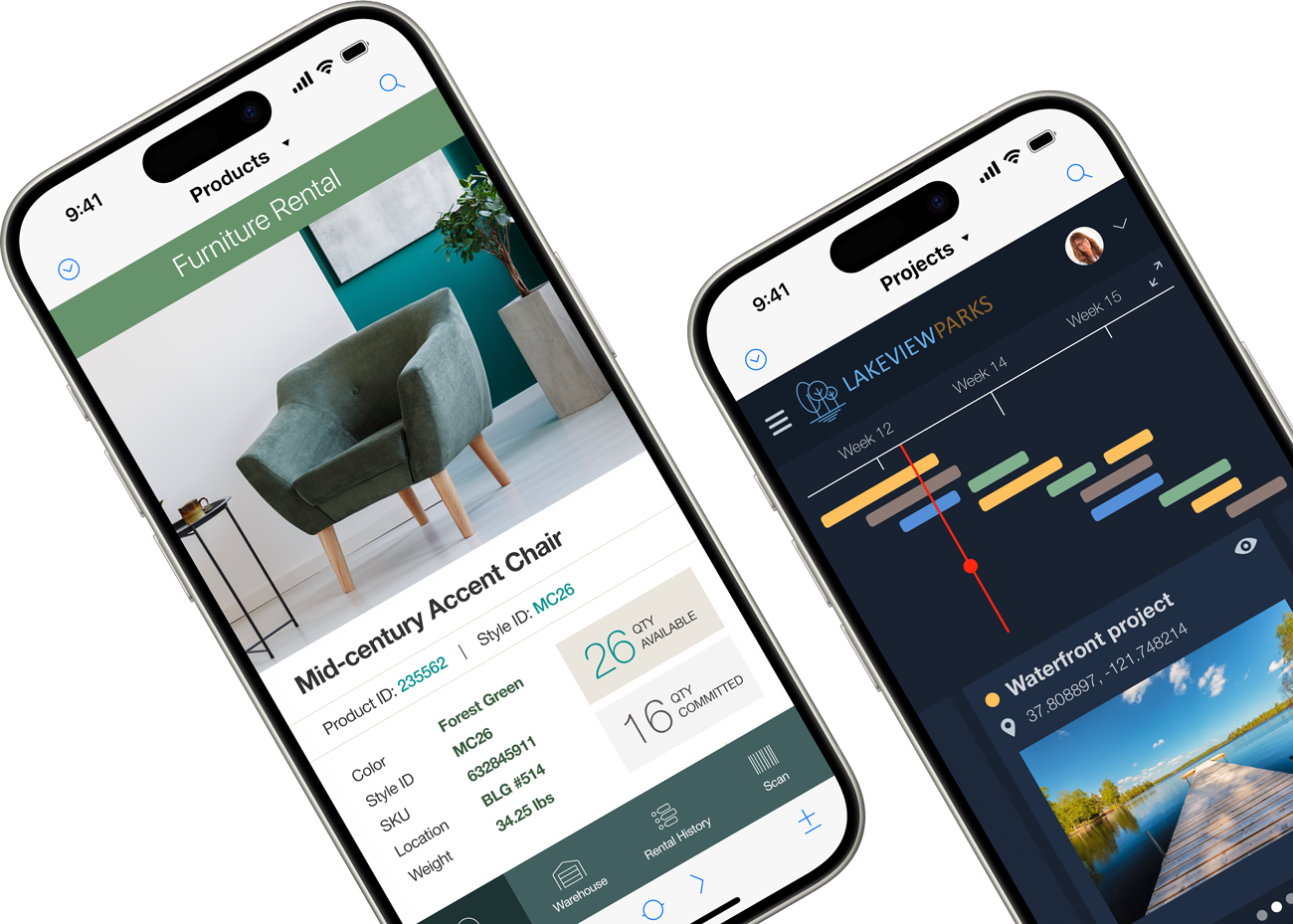

FileMaker works natively across Windows, macOS, Linux, iOS, iPadOS, and across the web. Deploy to the cloud, on-premise, hybrid, mobile, and even offline.
AES-256 encryption for data at rest. SSL/TLS 1.2 encryption for data in transit.
SOC 2® Type 2 report and ISO ISO/IEC 27001 and 27018 certifications for cloud services.
New! Let's Encrypt support offers simpler setup and better control for managing certificates.
How does FileMaker and the Claris platform align with your IT requirements?
Find out moreBuild, host, and deploy with flexibility, optimal performance, and enterprise-grade security. FileMaker tools support every step of the process so you can deliver the highest-performing custom applications ever.
BUILD & CONNECT
Build robust custom apps that run your operations with a professional, powerhouse platform. Solve the hard problems that matter with fast, flexible software that can continuously adapt to changing business needs.
HOST
Deploy Claris apps in the cloud in just minutes. No server software or hardware is needed. Get the latest features, functionality, and security updates faster and more efficiently.
HOST
Securely host your Claris apps on premise so you can share information on any device in real time with your team, providing greater visibility across your organization.
DEPLOY
Help your team be more productive anywhere with access to your Claris apps on iPad and iPhone devices. FileMaker Go is ideal for mobile teams in the field or away from a desk.
DEPLOY
Easily manage and share your business information. Run your apps natively in a web browser, and access them from any computer or mobile device.
Claris FileMaker works with Claris Connect and Claris Studio so you can build and connect your custom apps, integrate existing data, and automate workflows.
Explore the Claris platform

BUSINESS OPERATIONS
The impact that FileMaker has had on our business has been invaluable.Read full story
Get FileMaker support and resources from a community of problem solvers on standby.
Instant access to everything you need to unblock your build.
Join Claris CommunityGet inspiration and help from 40,000+ of the most helpful FileMaker developers around the world.
Work with an expert who can help guide, plan, and even build your next operational app.
Connect with a Claris Partner who can build and deploy your solution.
Ask ClarisGet help and guidance from a member of the Claris team.
Or call us.
If you prefer, we're just a phone call away.
North America: +1 (800) 725-2747
United Kingdom: +44 (0) 20 8268 6030
Australia: 1800 028 316
